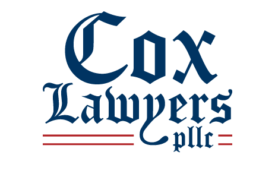On November 17, 2023, Democrat New York Gov. Kathy Hochul signed into law the Plain Language bill —a bill that allows a summary of a proposed amendment be put on the ballot instead of the full amendment. Also, the summary must be written at an eighth grade reading level or lower.
This election will be the first to implement the summary rule. New York voters will be asked to vote “Yes” or “No” on Proposal Number One — but only the summary of Part A will be printed on the ballot. If the voter has been paying only casual attention, they may think that they are protecting abortion rights. The actual legal language of Prop. 1 does not even include words specifically about abortion. Its protections go far beyond codifying abortion protections in the state constitution. It will upend state law and constitutional protections for equal rights currently in place and destroy the traditionally neutral standards of American law that safeguard other freedoms. Many voters will be voting blind.
The Prop. 1 journey began in July 2022 when Hochul called a special session of the state legislature to protect abortion rights. The urgency was necessitated by the Supreme Court Dobbs v. Jackson Women’s Health Organization decision in June that overturned Roe v. Wade. To further emphasize how grave the New York Democrats viewed the Dobbs decision, both Democrat-controlled chambers voted on the same day to approve the proposed amendment.
This rush presented the first hurdle for Prop. 1 to overcome. The method by which Prop. 1 was passed by the state legislature is unconstitutional, according to civil rights attorney and Brownstone Institute fellow Bobbie Anne Cox. Cox initially fought Prop. 1 in court and won. She later lost on appeal — in the same court that overturned her previous win against the COVID-inspired quarantine regulation that allowed state health officials to send New Yorkers to “quarantine camps” without due process or diagnosis of a communicable disease.
Cox pointed out that state legislators violated the law by voting that same day to put the amendment on the ballot. In order for amendments to be placed on the New York ballot, they are required to be introduced in both chambers of the state legislature, then reviewed by the state attorney general within twenty days of introduction, and then they can be voted on and approved by the state legislature to be placed on the ballot. However, in this case, New York Attorney Gen. Letitia James gave her opinion on July 6 — that is five days after the proposed amendment was already voted on by legislators and approved for placement on the ballot.
Cox also raised concerns about the timing of the vote — Hochul called for a vote on the Friday before the Fourth of July weekend. Additionally, the proposal was not placed on the ballot in 2023, as would be the normal course of events. Instead, it is placed on this year’s ballot — a presidential election year that typically sees higher voter turnout and is more focused on national issues than state ballot initiatives. (LISTEN FOR MORE: The Spectator P.M. Ep. 86: Liberals Seek to Enshrine Wokeness in New York’s Constitution)
Click HERE to continue reading the full article on The American Spectator

